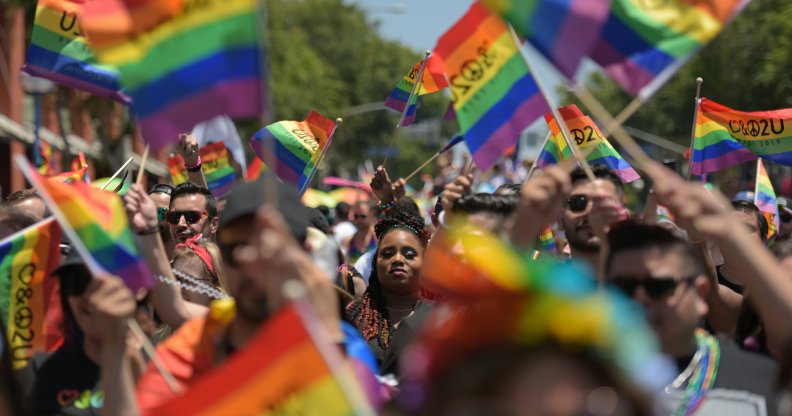Alabama lawmakers expand horrific ‘Don’t Say Gay’ bill to all public school grades under proposal

Lawmakers in Alabama have proposed to expand the bill. (Getty)
Lawmakers in Alabama have proposed to expand the horrific “Don’t Say Gay” bill to all public school grades, further restricting how schools in the state can address LGBTQ+ topics.
On 20 March, The House Education Policy Committee approved the expanded bill, which would ban teacher-led discussions on sexual orientation and gender identity in all classrooms. It would also prohibit the display of Pride flags in schools in the state.
Currently, the law prohibits such open discussions and support of the LGBTQ+ community in elementary school, which serves children in Kindergarten to Grade 8. It would be expanded up to Grade 12 under the new proposal.
The lawmakers also added an amendment prohibiting school employees from displaying flags which represent sexual or gender identity on public school property.
The bill’s sponsor claimed the expansion is required to prevent students from being “indoctrinated”, while the opposing lawmaker said the state is essentially “bullying” LGBTQ+ citizens and their allies. The bill will now be moving to the full Alabama House of Representatives.
House Minority Leader Anthony Daniels said the bill is “almost like bullying to be honest with you”.
“We’re bullying a certain class or group of people because they don’t have the representation to fight back,” he said.
Similar bills have been voted to expand in other states, like Florida, which passed an extension to the Parental in Education Act by 77 votes to 35 last year. Florida governor Ron DeSantis proposed an expansion to the legislation which sought to “forbid classroom instruction on sexual orientation and gender identity in all grades”.
However, the law was recently legally challenged in the state, meaning that students and teachers will be able to speak about sexual orientation and gender identity.
On 11 March, a settlement between Florida education officials and civil rights attorneys challenged the state law. The settlement clarified that the law does not prohibit the discussion of LGBTQ+ people, or prevent anti-bullying rules based on sexual orientation or gender identity. It also does not disallow Gay-Straight Alliance groups in schools.
The law also does not affect library books not being used for instruction in the classroom. But for books with incidental references to LGBTQ+ characters or same-sex couples, it was ruled in the settlement that “they are not instruction on sexual orientation or gender identity any more than a math problem asking students to add bushels of apples is instruction on apple farming”.
How did this story make you feel?

